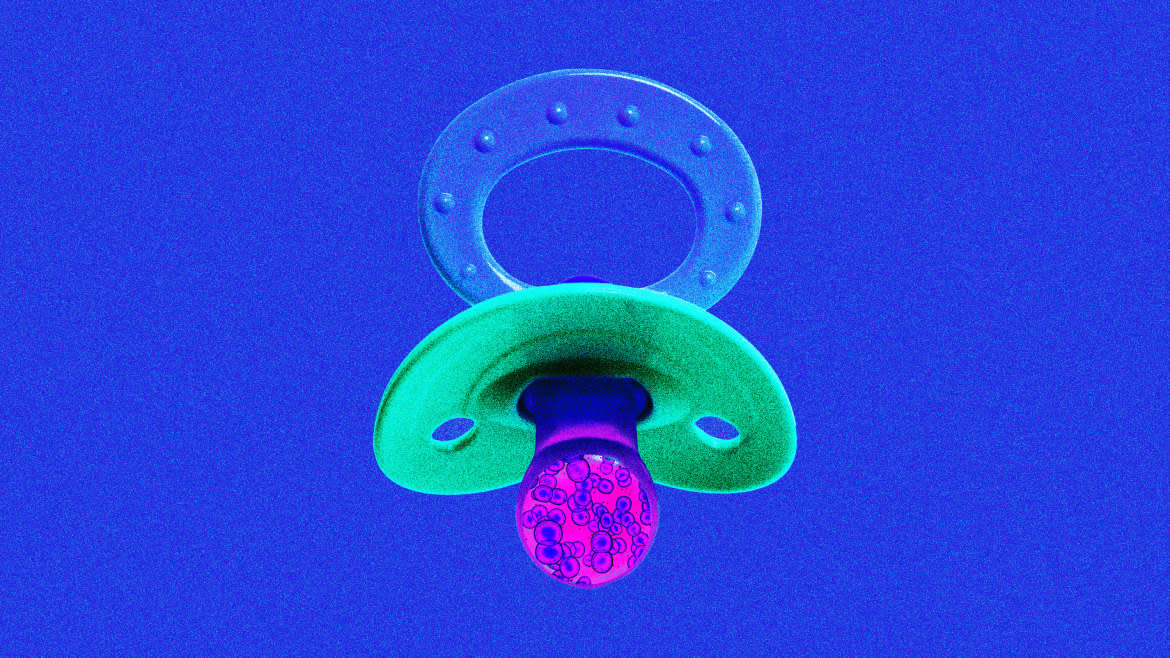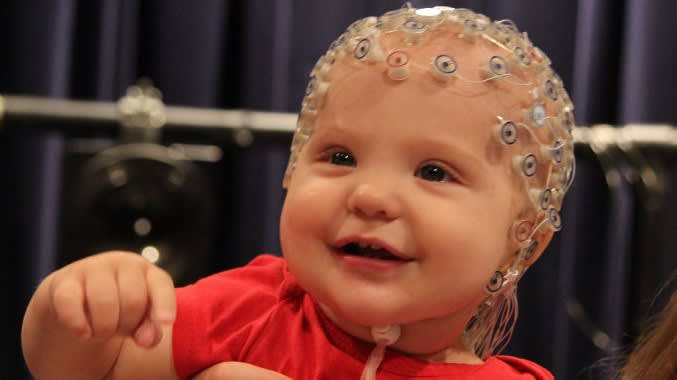Is the Gut Microbiome the Key to Raising a Baby Genius?

The surge in research into gut microbiome has been a refreshing revelation for scientists eager to understand how different parts of the body can affect physical health and the brain. But one of the most fascinating questions that has received scant research has been to how the diversity of bacteria living in the gut can affect brain development itself—especially in babies.
A small new pilot study seeks to change that by providing the first data of its kind exploring how the levels of certain types of microbes in babies’ guts can affect their cognitive development. The results, published in the journal PLOS ONE on Wednesday, suggests that infants who have greater levels of certain bacteria are more likely to exhibit sharpened cognitive abilities.
“Our small pilot study identified potential associations between the microbiome and measurements of early cognitive development,” lead study author Sebastian Hunter, from the University of British Columbia, told The Daily Beast. However, further research with bigger and more thorough trials is needed to establish the proper link between the microbiome and brain development.
Our Gut Bacteria May Have the Answers to This Mystery Illness Affecting Millions
Previous studies have found preliminary evidence linking the microbiome and early brain development, but there have been virtually no studies probing this connection directly.
“Microbiota colonization occurs before most neural systems are fully matured and have been linked to later brain health,” said Hunter. Dysregulation of the gut flora “can be associated with major neurodevelopmental psychiatric disorders. Research is mostly centered around association, rather than causation as that requires other experimental designs.”
So the researchers decided to hold a small study that could help build a foundation for this larger investigative question. The team analyzed data from 56 babies aged four to six months, and tasked each one with completing one of three different types of evaluations that test cognitive abilities. They also studied each baby’s gut microbiome through fecal samples.

A rhythmic pattern test on an infant.
What they found was that infants who excelled at “point and gaze,” a measure of the ability to share focus on an object with another person—exhibited higher levels of microbes in the Actinobacteria phylum, the genus Bifidobacterium, and the genus Eggerthella. They also tended to exhibit lower levels of microbes in the Firmicutes phylum, the Hungatella genus, and the Strepcococcus genus. Some of these bacteria species’ metabolic reactions have been previously found to be linked with brain and spinal cord development.
The differences in levels of Bifidobacterium, according to Hunter, was especially notable. “Bifidobacterium is the one with the most known relevancy to brain development,” he said. “Some bacteria from this genus are considered probiotics with strong associations to the gut-brain axis and host immunity and can promote the formation of synapses and microglial function.”
The team also took electroencephalogram (EEG) readings to measure brain activity in the infants. And what they observed was that when hearing a steady beat, babies who showed the same aforementioned elevated and decreased levels of certain microbes also demonstrated better processing of rhythms in the brain, per their EEG readings.
Could the Microbiome Cure Eating Disorders?
Ultimately, however, this is still just a small pilot study. And it will take way more research to fully flesh out what exactly the link between gut microbes and brain development is—and what parents ought to do for their children. But there will surely be no slow down of this kind of research moving forward if it means figuring out the secret to raising a new generation of prodigies.
“Future results could highlight certain microorganisms or metabolic compounds that could be supplemented or targeted to promote a healthier development of the neural systems,” said Hunter. “Again, lots of research is still needed to truly identify meaningful targets that are shared across cohorts.”
Get the Daily Beast's biggest scoops and scandals delivered right to your inbox. Sign up now.
Stay informed and gain unlimited access to the Daily Beast's unmatched reporting. Subscribe now.

